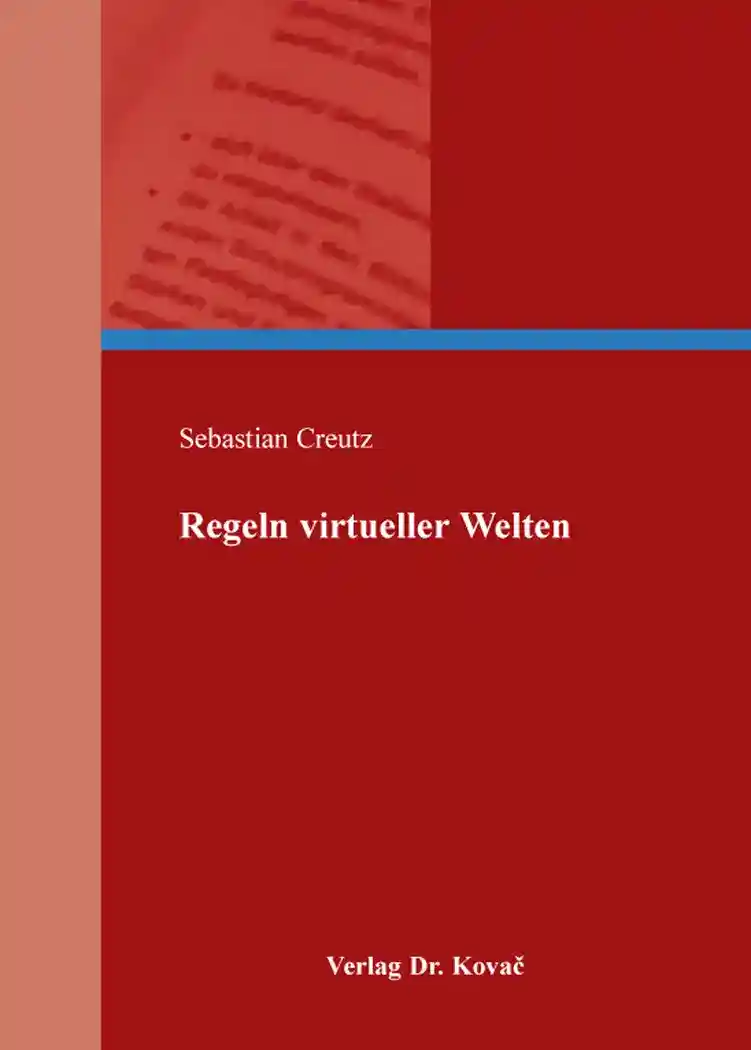Sebastian CreutzRegeln virtueller Welten
Recht der Neuen Medien, volume 65
Hamburg 2014, 234 pages
ISBN 978-3-8300-7839-5 (print)
ISBN 978-3-339-07839-1 (eBook)
Rezension
[…] [Der juristische Praktiker], der wissen will, ob und unter welchen Voraussetzungen er eine Regel als staatliches Recht behandeln muss […] wird […] gern den Schlusssatz des Verf. unterstreichen […]. Ein wichtiges Thema und seine Behandlung auf beachtlichem Niveau.
About this book deutschenglish
Some years ago, virtual worlds became part of the German media coverage and have thereby entered into the general public’s awareness. Soon the legal literature took on a number of legal issues around and in virtual worlds. Though the focus of the media has decreased since then the number of users grows continuously and the legal issues remain relevant and gain in importance. The previously published legal studies put their focus on the legal nature of virtual objects and avatars, or on the legal relationship between the users and operators of virtual worlds. However, what was missing until now was a detailed analysis of the basis of any such legal relations besides the statutory law, namely the rules of a virtual world set by its operator. This gap is closed by Sebastian Creutz’ work “Regeln virtueller Welten” (“Rules of Virtual Worlds”). In the first chapter the author lays out general principles which are essential for the understanding of virtual worlds and their rules and summarizes the rules of three different virtual worlds, namely World of Warcraft, Travian and Second Life, which form the basis of the following scientific analyses. The following socio-legal chapter examines whether and to what extent rules in virtual worlds can be defined as statutory law. The differences and similarities between the rules of virtual worlds and the positive law are illustrated. The third chapter analyzes the rules of virtual worlds under German law. They are grouped into different types and the legal consequences resulting therefrom are explained. Based on the results found in the previous chapters the final chapter examines specific rules of virtual worlds, namely the prohibition to transfer virtual goods or accounts, the obligation to use the virtual world, service levels and measures against the exploitation of bugs.Keywords
AccounttransferAGBInternetrechtOnline-WeltenOnlinespieleRechtssoziologieSecond LifeSpielregelnTravianVirtuelle GegenständeWorld of WarcraftYour book at Dr. Kovač Publishing House
We publish your doctoral thesis >>
